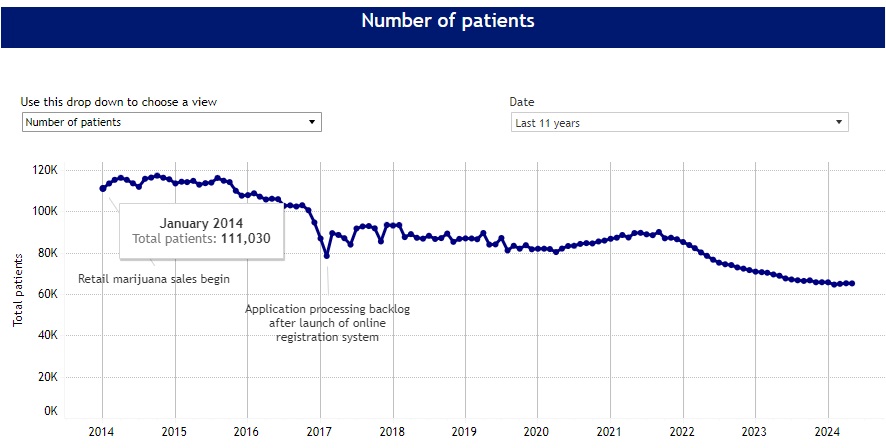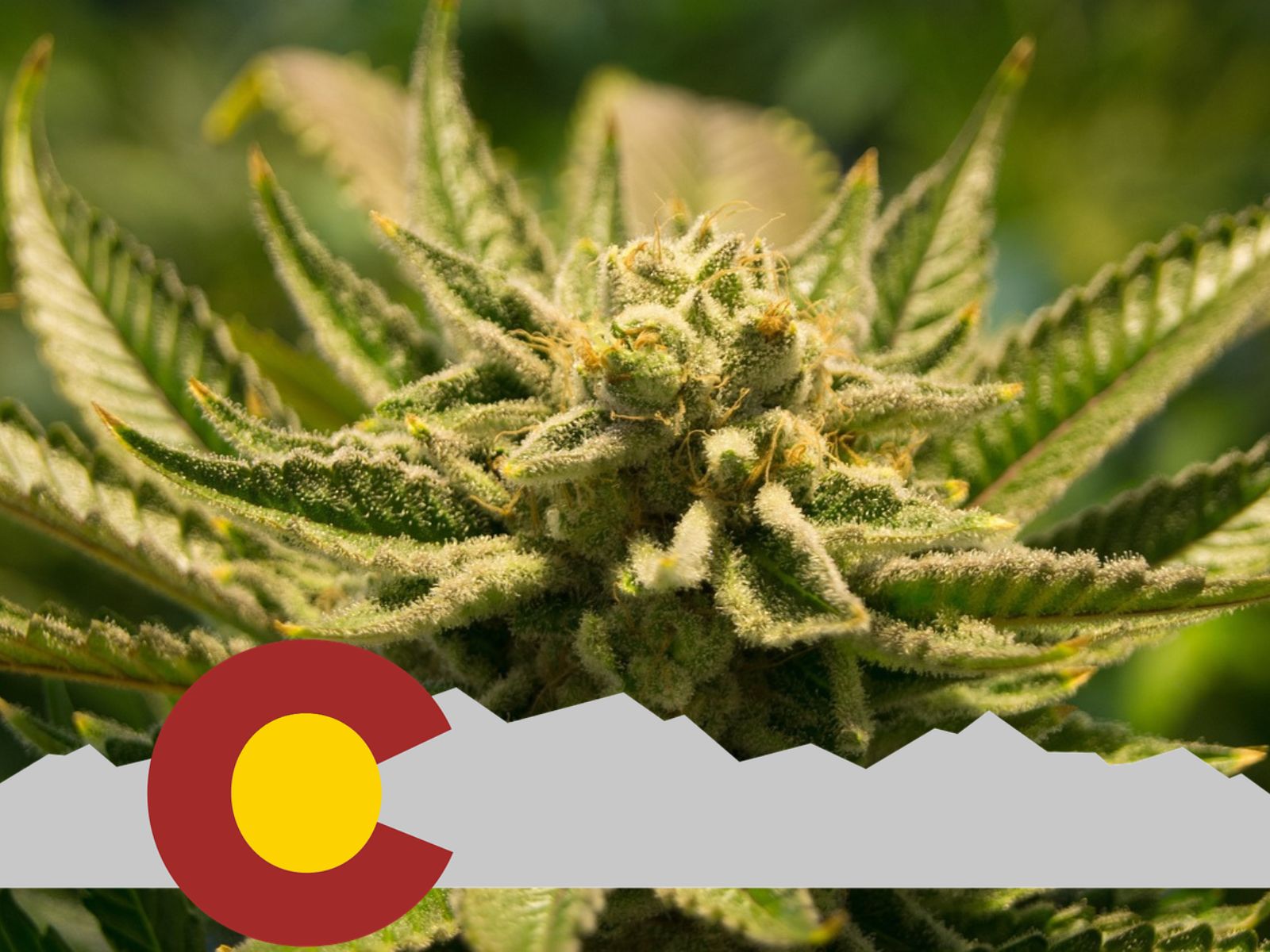Colorado first legalized cannabis for medical use in 2000, although commercial medical cannabis retailers operated in a legal grey area for a time. In 2012, Colorado became one of the first states to legalize cannabis for adult use along with Washington State.
Like all states that first legalized cannabis for medical use and later adopted recreational cannabis legalization, Colorado’s registered medical cannabis patient base has shrunk over the years. The first legal adult-use sale occurred in Colorado on January 1st, 2014.
“Even after recreational sales started in 2014, the number of customers for medical marijuana was fairly stable, but it is now in the midst of a sustained decline. The number of registered medical marijuana patients, tracked by the state health department, has fallen 28 percent since Sept. 2021, from 89,978 patients to 65,101 in May 2024.” reported Colorado Public Radio.
“Medical marijuana sales, meanwhile, have hit their lowest levels in at least 10 years, totaling only $15 million in April, down 63 percent from April 2021, according to the State Department of Revenue.” the local media outlet also stated.
Below is historical patient data for the Colorado medical cannabis program going back to January 1st, 2014 when the state had over 111k registered patients:

Oregon may serve as the best example of a state’s medical cannabis patient base dwindling in a post-legalized recreational commerce market. Oregon was just the second state to legalize medical cannabis in 1998, only behind California. However, whereas Oregon implemented a centralized patient registry, California did not.
Legal adult use sales began in Oregon in October 2015, making Oregon the third state to launch recreational cannabis sales behind Colorado and Washington State. That month, Oregon’s medical cannabis program served 78,045 patients. As of January 2024, that number was down to 15,091 patients, a more than 80% reduction.
Many previously registered patients in recreational cannabis states take advantage of adult-use home cultivation laws and/or dispensaries, neither of which require additional hoops such as doctors visits, registration forms, and program fees.
However, many states do not tax medical cannabis sales and being a patient does provide other benefits in some situations, so some patients still register despite legalized recreational options.

